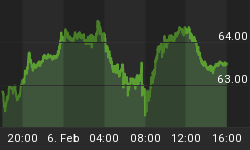Bill Gross, co-CIO of PIMCO, appeared on Bloomberg TV's "In the Loop" with Betty Liu and said that Mario Draghi disappointed investors by not offering concrete policy steps: "we were hoping for, at least temporarily, some type of specific effort on the part of the central banks."
Gross also responded to Jeremy Siegel's comments on Bloomberg TV earlier today that Gross doesn't know economics by suggesting that he "hasn't even read my piece, let alone understood it." Gross said that Siegel "belongs back in his Ivory tower."
Gross on whether he is disappointed by the lack of details coming from Mario Draghi:
"Yes, it is less powerful than we had hoped for. To this point, the ECB and other policy makers have been all about promises and inviting others to take the first step and it appears that we are seeing much of the same thing this morning. Draghi is saying Spain and Italy should take the first step, make a request, and then something might happen. He is not exactly sure how much he would buy or the ECB would buy, whether it would be sterilized or unsterilized. This is a game of promises, a kick the can type of moment and yes, we're disappointed."
On what happens in Europe from here:
"It's fair to say that risk markets have built in an uncertainty level of anticipation. U.S. stocks have gone up, whether by 2% or 3% in anticipation of this moment, of this money printing moment is hard to say. I would think that today in terms of risk markets, we are seeing a selloff because that is what the markets have been anticipating, some type of monetization from the ECB which in concert with the Fed, perhaps in August in Jackson Hole, would be a one-two punch."
On what he was hoping for:
"We were hoping for, at least temporarily, some type of specific effort on the part of the central banks and ultimately of course on the part of fiscal agents, which is the combination that Ben Bernanke has been pleading for in the United States. To rectify the situation in part, we have never been a believer in total that both combinations, monetary and fiscal, could solve the problems because there are negative aspects of any of these solutions going forward. Zero-based money produces very negative aspects in terms of business models, money market funds and bank loans etc.This isn't just a one-way street in terms of printing money and things will get better again. We have been skeptical but at least at the moment in terms of kicking the can, and placating the waters, we've been hopeful that something would be done without the expectation that it's a permanent solution."
On how patient the market will really be:
"I think it's perhaps passed the point of patience. I speak to the scarlet 7% on the market's chest so to speak and that refers to interest rates in Spain and Italy, towards which and above which, their countries have gone in terms of their ten-year securities. Once you get to that level, once ratings services begin to downgrade your sovereign instruments, once the market fails to trust what's going forward in terms of returning yields to 3% and 4% that might promote a semblance of economic growth going forward, then the story is pretty much over. Absent something significant over the next week in terms of a follow-through on the part of the ECB that the market in part, and certainly PIMCO will never trust Italian bonds and will never trust Spanish bonds because the yields are too high and the technical deterioration is too significant and the ratings services are on their heels in terms of downgrading."
On Jeremy Siegel saying earlier today that it's usually the start of a huge bull market when the media pronounces equities dead:
"Professor Siegel is getting a little nasty here. Yesterday I was praiseworthy but it seems like gloves are off. When I said that the cult of equity was dying, what I meant was that those investors and those liabilities structures such as pension funds and insurance companies that have depended on a 6.5% constant real return from stocks such as we've have had over the past century are bound to be disappointed. In individual terms, those that are looking for double digit returns of stocks to pay for education and retirement are bound to be disappointed and that's why the cult of equity is dead. It sounds like Prof. Siegel hasn't even read my piece, let alone understood it. I said as well the cult of bonds is dead. When bonds yield 1.75% for investment-grade bonds, then it's difficult to turn that into a 5-10% return going forward. What we have really seen over the past several years, in terms of the appreciation of markets and the decline of interest rates based on what the Fed has been doing is a result which has eliminated the possibility of investors in bonds and stocks to earn an adequate return relative to their expected liabilities. If he wants to argue against that, and talk about Dow 5000 and bear and bull markets then he's welcome to but he's pushing at wind mills in my opinion and he belongs back in his Ivory tower. There, backatcha!"
On Siegel's retort that "the real U.S. economy is growing at 3.5% per year so how could stocks give 6.5% per year?"
"Prof. Siegel's ivory tower again lacks common sense. If wealth is created at 3% a year based on GDP, and that wealth is divided as it always is by government, by labor, and by business in the form of corporate profits, then it's hard to see how one element like corporations and stocks can continue to earn 3% more than real GDP going forward. That's only common sense."















